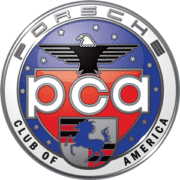P4Us – DE – February
I don’t know about you, but I am pretty psyched up about our DE 2015 season approaching and getting back on track. Our schedule is set for 2015 and by the time you read this, we would have just held our Instruction to High Performance Driving seminar (January 25, 2015). It is at this seminar we introduce new drivers (and potential drivers) to the world of DE, what is it all about and how to partake in these driving events. If you missed it, here are some of the highlights regarding preparing for a DE event.
PREPARING FOR A HIGH PERFORMANCE DRIVING SCHOOL
It is more fun than you can imagine!!
Participating in a High Performance Driver Education event (HPDE or more commonly known as just DE) is one of the coolest things you can do with your car. If you’ve had that experience you know the fun and challenge of driving your car at speed on a race track. As you progress in speed and skill, it takes a little more preparation. If you’ve never done an HPDE (High Performance Driving Event) you might have some questions about how to prepare.
HPDE for Beginners
Your first Driver Education event is more about preparing as a driver than preparing your car with special equipment. Instructors will typically tell you to refrain from doing anything special to your car, other than basic preparation. That’s good advice.
PREPARING AS A DRIVER: It’s important for your head to be in the right place. Come prepared to LEARN more than PERFORM. Learning, however, will turn into performance. You’ll learn several things about safety, behavior on the track and how to develop good habits. Getting plenty of sleep and drinking lots of water is an example. Performance Driving Schools use flags for communication, much like a race. You’ll learn about those. You will need a helmet, but if you don’t have one, NNJR has loaner helmets that we bring in to the track. If you do borrow one it would be considerate to use a balaclava (head sock). Other than that, simply relax and get ready to have fun with the other drivers in your group. Speaking of groups, we segregate our drivers by virtue of their experience and their ability to demonstrate the skills needed for that group. These groups are color coded and are Green (Beginners), Yellow, Blue, White, Black and Red (Instructors). At each DE event, you are driving with other drivers that are at your skill level (your run group). The Green through Blue drivers all have an Instructor in the right seat when they are on track.
PREPARING YOUR CAR: For your first DE events, forget about performance upgrades. It’s actually to your advantage to learn by driving a car in standard trim. You will, however, need to have a safety inspection performed on your car. Not to worry here as we hold free Tech Inspection sessions, approximately 2 weeks before each event. The schedule and location for these are published here in P4Us and are posted on line on our web site. If you cannot make it to the free session, you can go to your local Porsche dealer or any of the garages listed on our website (friends of NNJR section) and have your car “Tech’ed”. You should also check out our Tech Form (on-line) and review the list of items that will be checked at the Tech session. Please bring this form with you to Tech as it needs to be completed and signed. Amongst many things, your suspension components will be checked as well as you brakes. Your brakes might need attention as your pads might not be thick enough for the track and might need to be replaced. At this stage it has more to do with heat buildup than wear and performance. Your brake fluid might need to be replaced in order to handle the heat of high performance driving and it will need to be changed within one year of the event. Although you generally don’t want to consider performance upgrades in the beginning, it could help you to use racing brake fluid.
For the new DE driver, please refer to our FAQ tab in the DE section of our web site for additional details and information.
HPDE for Returning Students
If you’ve already participated in a high performance driving school you know the drill. As you develop skill and speed your car will require more preparation and you’ll be considering performance upgrades.
PREPARING YOURSELF: Since you’ve done a few High Performance Driving Schools you’re probably thinking about doing more, and maybe even making it part of your lifestyle. Here are a few things to consider:
HELMETS: If you started with a helmet at a low price point,ÂÂ it’s a good idea to upgrade to a higher quality “brain bucket.” You know the saying, “How much is your brain worth?” I advise to never buy a helmet on-line. The proper fit is a key element of how it provides protection much less how comfortable it is.
HARNESSES: Staying firmly fixed in your seat adds comfort and helps you perform better on the track. I have seen various ways people go about trying to stay frimly fixed (i.e. the use of a CG-Lock on your OEM seat belts), however, you’ll want to upgrade to a more extensive harness system at some point. This will necessitate that you get seats that are made for harnesses. If you are going to get serious about this sport, then please get serious about safety first.
BRAKES: Getting a set of track pads is a common performance upgrade, but it’s important to use the right combination as you switch from street to track and back. The wrong combination could leave deposits on your rotors that will degrade their performance. Please discuss this with your favorite Porsche shop.
TIRES: This is a common upgrade. For your first year in DE, I would stick with street tires as they provide the needed feedback and are more “user friendly” (more predictable) when you are just learning. Once you are ready to go to higher performance tires (i.e. DOT R Comp), consider a second set of wheels for these sticky tires for the track. That doesn’t mean that you should go straight to racing slicks. You can use a set of high performance tires that are DOT approved. You can use some of them to get you to the track but discuss this with you tire retailer or your favorite Porsche garage.ÂÂ Alternatively, you can use dedicated track tires, bring them with you and mount them at the track (welcome to the slippery slope).
OTHER UPGRADES: By now you’ve thought of other ways to feed your high performance driving addiction. Racing seats and roll bars might come to mind, along with other safety equipment. It never really ends, but it really is a great form of recreation and it puts you in the company of some of the best people you’ll ever get to know. Not to over use the PCA mantra, but it’s not about the cars but about the people.
The 2015 season is quickly approaching and do remember that sign-up for our events is via www.motorsportreg.com (MSR) and that these events to fill up quickly, especially for the student run groups. Registration opens up on midnight 8 weeks prior to the event and yes, there are many people who will stay up and at the stroke of midnight sign up. I would suggest that you go on to MSR and create an account for yourself so you are ready to go when Registration opens.
I hope to see you out there and enjoying this fantastic sport and all that it brings.
Tom Iervolino
NNJR-PCA Track Chair



